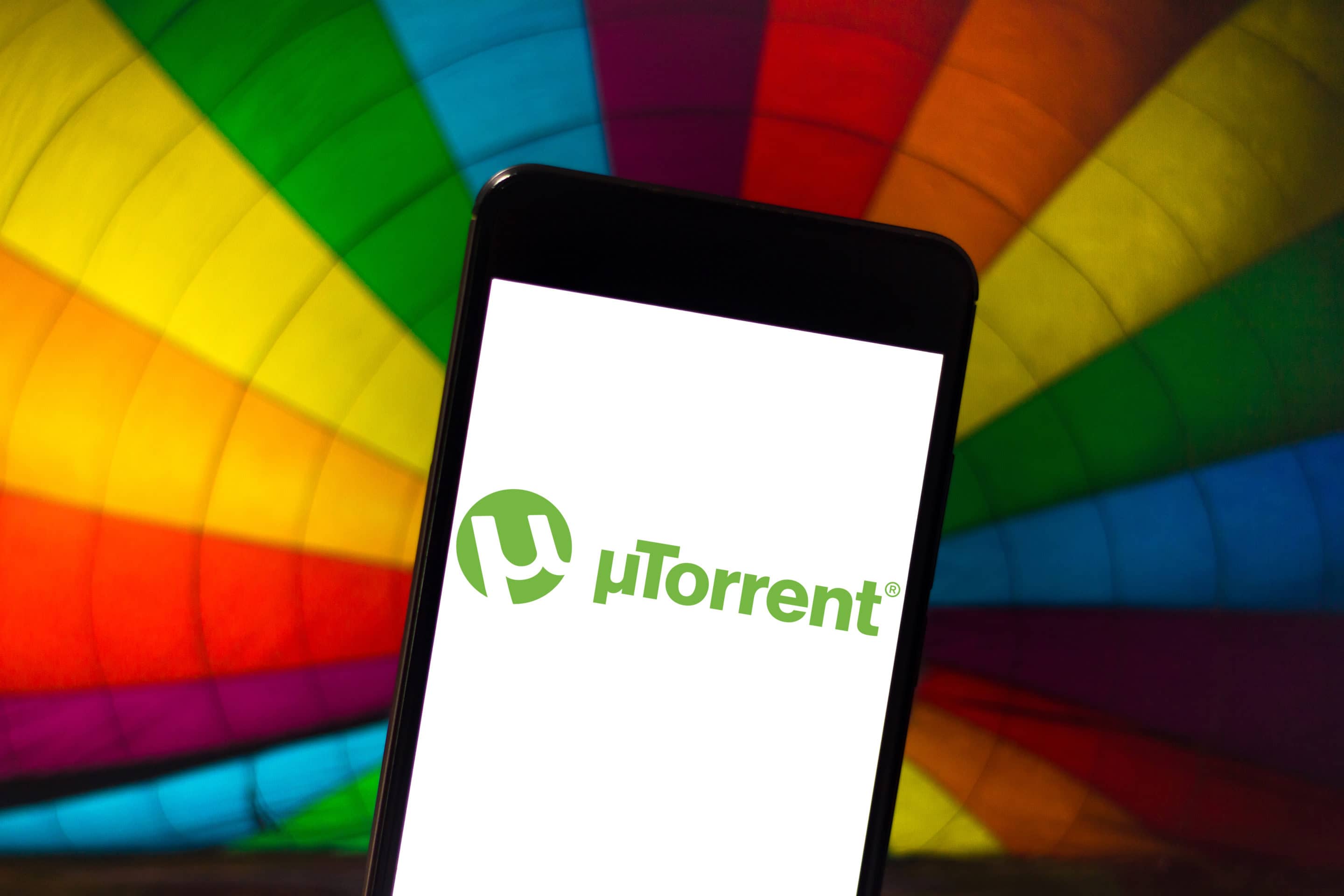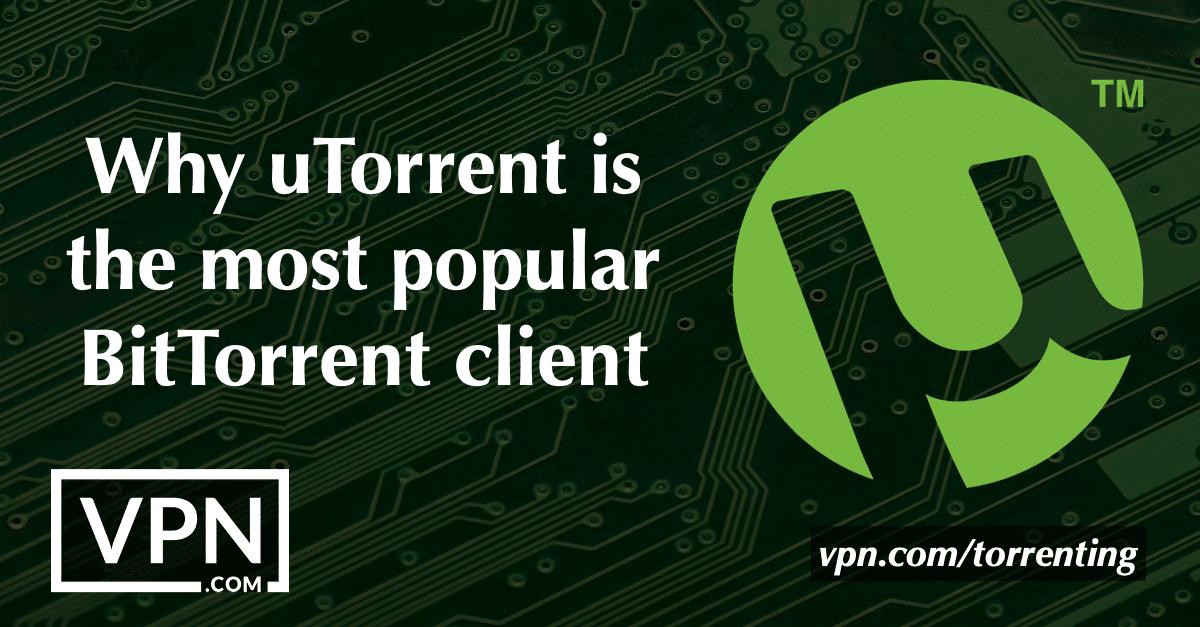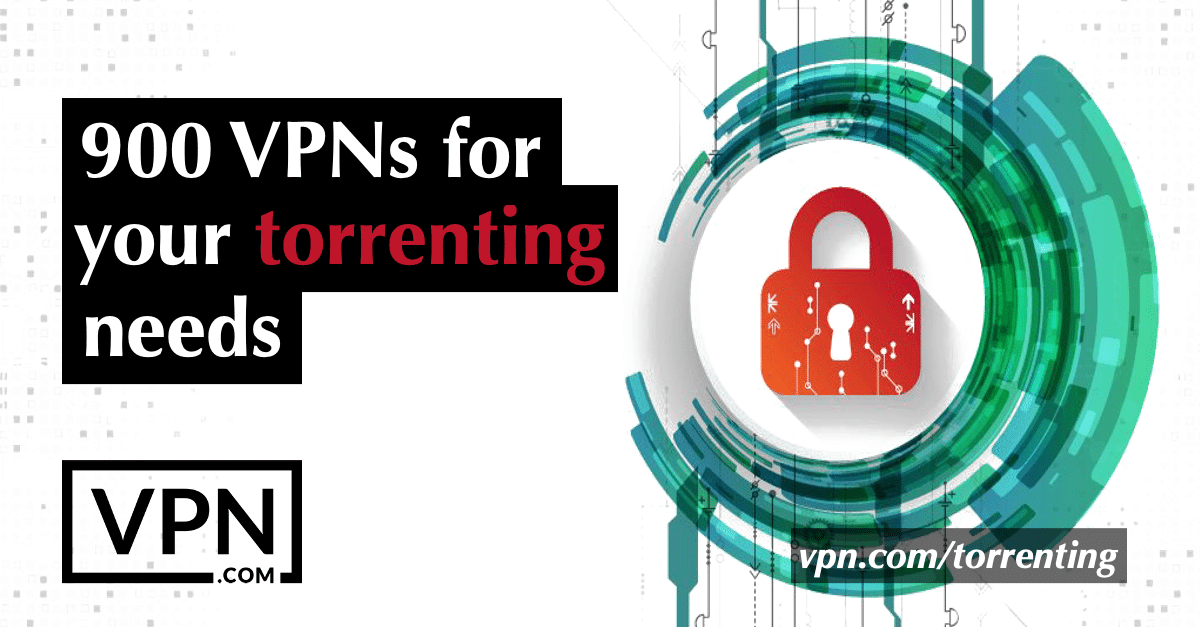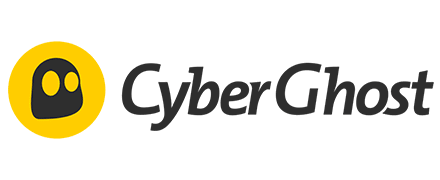uTorrent VPN Guide 2024: Safe & Anonymous Torrenting Explain

With millions of users worldwide, uTorrent is the most popular BitTorrent client. But is it safe to use? Without a uTorrent VPN, you’re exposed to potentially serious privacy and legal issues every time you torrent.
uTorrent users need a VPN to ensure privacy, bypass network firewalls, mitigate bandwidth throttling, and maintain anonymity while torrenting.
In this guide, we’ll briefly discuss the history of file sharing, analyze the rise of uTorrent, and explain why using a VPN has become essential any time you torrent.
History Of File Sharing, uTorrent & VPN

The First P2P Network & The Legal Backlash
In 1999, Napster became the first true peer-to-peer (P2P) network that was used on a global scale. When Napster launched, broadband download rates were so slow that the media was generally limited to songs, due to their small file size. As online security and privacy became a concern, the need for tools like uTorrent became apparent. Before long, the company was hit by multiple lawsuits.
Metallica was one of the high profile bands that sued, and they were also one of the many that won their case.
The issue was that Napster stored substantial amounts of the data that was being downloaded on servers it owned, and so was deemed responsible for the content that was being shared. With the rise of uTorrent VPN solutions, users became more protected and anonymous. As a result of the financial backlash from legal costs, Napster folded and sold off its assets. But that wouldn’t be the end of P2P networks or widespread file sharing, especially with the availability of uTorrent VPN services to safeguard users.
The Creation Of Decentralized P2P Networks

To combat the legal issues that caused Napster’s downfall, a new, decentralized model of P2P networks was created. Instead of having a central server that files were downloaded from, files would be split up in chunks across groups of servers. This way, there was never enough data stored on one server to constitute the ownership of copyright material.
When someone wanted to download a file, their device would grab pieces of the file from servers in a large file sharing network. Unfortunately this method requires more bandwidth for every file being downloaded, so it didn’t scale very well.
The Modern Torrent
Torrents improved upon the decentralized P2P model by treating each file as an individual network. Since the query isn’t being handled by a separate server, the need to scale up server bandwidth to cope with more users was eliminated. Instead, the client computers handle the queries, with each computer in the network essentially saying, “Here I am!”
The primary issue with this method is that it makes torrents incredibly easy to track. When a torrent is initiated, your computer joins the P2P network, and identifying information including your IP address and location is revealed. Everyone in the P2P network can see this information, as well as anyone looking for copyright infringement.
For example, college students quickly realized their institutions were tracking the usage of popular file sharing programs, such as LimeWire and uTorrent, so they started using a VPN to hide their activity.
Legal Cases Against Torrents
As file sharing clients learned from Napster’s demise and ensured they could not be attacked from a legal standpoint, copyright lawsuits turned their attention away from the clients and to their users.
In 2008, the Motion Picture Association of America (MPAA) declared that American film studios lost $2.4 billion to Internet piracy in a single year. Almost immediately, the MPAA and the Recording Industry Association of America (RIAA) pressed forward with hundreds of legal cases on behalf of copyright holders, with some cases targeting thousands of people (The MPAA later admitted that it may have inflated piracy numbers by 300% and assumed that each illegal download was the same as a lost sale in its 2008 declaration.)
When issuing mass copyright infringement suits, the MPAA and RIAA tracked IP addresses that they believed to have illegally downloaded copyrighted material. Whoever paid the Internet provider for that IP address became responsible for any alleged illegal downloads, and were held legally and fiscally responsible. The associations were able to obtain ISP addresses through powers introduced by 1998’s Digital Millennium Copyright Act, which allowed them to issue a subpoena to Internet providers in order to identify individuals accused of copyright infringement.
Collectively, the RIAA and the MPAA have sued tens of thousands of people, often forcing defendants to settle cases despite there being no direct evidence of wrongdoing. In one notable case, they issued a file sharing lawsuit to a deceased person with no record of ever owning a computer. It became clear that anyone could be targeted for copyright infringement at any time, regardless of whether they had torrented anything illegal or not.
The MPAA’s Copyright Alert System
In 2013, the MPAA helped create the Copyright Alert System to identify Internet users who attempted to use file sharing sites. The five largest Internet providers in the US implemented the system, which featured six “strikes” that it delivered to the user when potential file sharing was detected.
The first two strikes were warnings, the second two strikes were notifications that required a response, and the final two strikes imposed punitive measures, such as bandwidth throttling. Essentially, the Copyright Alert System could slow your Internet speed to a crawl if it believed – without any definitive proof – that you were downloading illegal content.
For the millions of people determined to use uTorrent safely, a uTorrent VPN became their best hope.
The Rise Of uTorrent VPN

VPNs have been around in various forms since 1996, when the first tunneling protocol was created by a Microsoft employee. While it wasn’t technically a VPN, it was perhaps the grandfather of the software. As legal challenges in file sharing emerged and the need for user protection against tracking and potential legal issues grew, the rise of uTorrent VPNs became evident. Businesses started to use VPNs to increase the security of their local networks, but ordinary Internet users soon realized they could benefit from a uTorrent VPN, too.
Those who engaged in P2P networks recognized that a uTorrent VPN would obscure their IP addresses and encrypt the data being sent from and received by their computer. This enabled uTorrent users to gain much-needed anonymity and an additional layer of security. As a result, organizations like MPAA and RIAA target individual users based on IP addresses, associating them with alleged illegal downloads and leading to legal repercussions.
Is uTorrent Safe To Use?

uTorrent is particularly popular because it’s a stripped-down version of the standard BitTorrent client. uTorrent is free from bloatware, works well across dozens of platforms, and even has encryption protocols in place. On the surface, it appears that uTorrent is safe. However, there are inherent dangers that come with any file sharing service, and there are some necessary precautions that need to be made before you torrent.
Always Use Malware & Antivirus Protection
Given the nature of torrenting — downloading files from random sources — it’s fairly easy to inadvertently download a virus, especially when downloading executable files. Good antivirus and malware protection should always be installed before using uTorrent. For the best results, keep your software up to date and ensure your computer is running the latest security patches.
uTorrent Is Safest When You Use A VPN

The MPAA and RIAA continue to target IP addresses that they believe associate with P2P networks. They’re assisted by Internet providers that monitor “suspicious” clustering and trace the IP addresses to the account owners, then report their findings. In the UK, more than 1 million piracy alerts were been sent by Internet providers over a two-year span.
While the courts have been pushing back on the use of IP addresses as the sole identifier of people, it hasn’t stopped the flow of lawsuits. In the United States, over 6,000 copyright infringement lawsuits were filed in 2018.
In addition, some Internet providers ban uTorrent and other file sharing services due to pressure from media studios or local governments. Using a uTorrent VPN is the only way to guarantee safe, anonymous media access no matter where you live or what you intend to torrent. With a uTorrent VPN, your IP address is completely hidden, so there’s no way to trace any torrents back to you or your device. You’ll also benefit from secure, unlimited bandwidth servers to ensure your download & upload speeds are as fast as possible.
So, is uTorrent safe? Yes – if you take the necessary precautions. Up-to-date antivirus, malware, and VPN solutions are essential if you want to safely file share with uTorrent.
How To Choose The Best VPN For uTorrent

When looking for a uTorrent VPN, you need to consider several factors. Not all VPNs allow file sharing, and the services vary greatly between those that do.
Some important questions to ask yourself before subscribing to a uTorrent VPN:
Is P2P File Sharing Supported?
The support of P2P networks is a must, for obvious reasons. Some VPNs restrict file sharing and are not suitable for use with uTorrent or any torrent client.
Are There High Speed Servers With Unlimited Bandwidth?
A fast download speed can be the difference between a torrent taking minutes to download or taking hours. Unlimited bandwidth will ensure your connection never gets slowed down, no matter how much data you use.
What Encryption Protocols And Other Security Features Are Offered?
The best VPNs come with a suite of handy security features. The most important is a no-logs policy, as this means that they do not store your session data anywhere. As a result, if the VPN provider is legally forced to reveal the Internet activity of their subscribers, they can claim absolute denial, as they do not keep logs.
Many providers offer malware protection, ad block, and other security solutions to complement their uTorrent VPN. Any additional protection against malware or viruses is great when using uTorrent VPN.
You’ll also want to see what encryption protocols the VPN offers for use. Certain protocols are suitable for different use cases, but be sure that OpenVPN is available for use. OpenVPN is the newest encryption protocol, features the best security, works across every platform, and is open source.
Is There A Kill Switch?
A kill switch automatically disconnects your device from the Internet in the event that connected to your VPN is lost. The best VPNs for uTorrent experience little to no downtime, but in the event they do, a kill switch will ensure your data doesn’t become exposed.
Do The Server Locations Fit Your Needs?
Servers across the globe give you options to access the Internet from anywhere. If you wish to torrent content that’s only available in a certain country or avoid Internet censorship where you live, having a healthy selection of server locations to choose from is important.
Is The VPN Compatible With All Of Your Devices?
A VPN app for every device you intend to use with uTorrent is essential. If you torrent away from home or on public WiFi hotspots, you’ll want to ensure your laptop or mobile device is protected by a VPN.
We also recommend using a VPN that supports multiple connections. That way, you can protect every device you use at once.
Can I Use A Free VPN For uTorrent?
Free VPNs are alluring, but they rarely contain the features you need to use uTorrent safely. In general, the security measures of free VPNs pale in comparison to their premium counterparts — they use dated encryption protocols, limit bandwidth usage, and restrict the servers you can join.
However, the primary reason we urge you to stay away from free uTorrent VPNs is that they don’t keep your data safe.
These free services still have to make money, and they most often do so by selling the data of their users — the very thing they’re trying to protect.
Even at the value of zero dollars, it’s not worth it to have your online data exposed. Besides, most of the best VPNs for uTorrent have plans under $5/month. Having a service you can trust to protect you while you torrent is worth spending a few dollars every month.
How To Use uTorrent With A VPN?

In general, these are the steps you will follow when using a VPN with uTorrent for the first time:
- Create an account a subscribe to your chosen VPN.
- Download and install the VPN client on your device.
- Log into the VPN.
- Review your privacy settings and user preferences.
- Activate the VPN. You now have a secure, anonymous connection to the Internet.
- If not already installed, download the uTorrent app.
- Open uTorrent.
- Share and download files.
Safely File Share With A uTorrent VPN

As long as uTorrent is legal, you should have a way to safely use the service. Currently, a VPN is the best way to do so.
Whether you want to avoid copyright lawsuits, stay protected from P2P hackers, beat Internet censorship, or simply attain a modicum of privacy on the Internet, using a VPN with uTorrent gives you safe, anonymous access to a world of content.
Customer Reviews for NordVPN: In-Depth Review, Tests, and Stats

Connection issues with MLB.TV
May, 2 2023

Prompt customer service
May, 6 2023

I would highly recommend
December, 15 2023
The Best uTorrent VPN Of November 2024
NordVPN
30-Day Money-Back Guarantee.
Instant NordVPN Download
- Hundreds of secure, dedicated P2P servers
- Compatible with Tor for complete privacy & anonymity
- Blocks malware, ads, & bots
- Connect up to 6 devices with one account
- 30-day money-back guarantee

CyberGhost
- Great combination of speed & security
- Unlimited bandwidth & traffic
- First VPN to publish a Transparency Report
- Connect up to 7 devices with one account
- Free trial & 45-day money-back guarantee

TorGuard
- Works great with popular torrent apps
- SSL Stealth hides the VPN from your ISP
- Blazing fast download speeds
- Connect up to 8 devices with one account
- 7-day free trial

SurfShark
- Blocks ads, malware, & phishing attempts
- Camouflage mode hides the VPN from your ISP
- MultiHop allows increased footprint masking
- Connect unlimited devices with one account
- 30-day money-back guarantee

ExpressVPN
- Unlimited bandwidth
- Anonymous payment methods
- No user logs, no DNS blocking, & no third parties
- Connect up to 5 devices with one account
- 30-day money-back guarantee

PureVPN
- Port Forwarding available for added security
- Unlimited bandwidth
- Dedicated & highly optimized P2P servers
- Connect up to 10 devices with one account
- 31-day money-back guarantee
